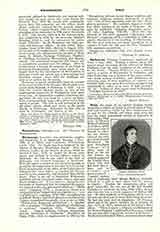

Weld, the name of an ancient English family (branches of which are found in several parts of England and America) which has been conspicuous for its zeal for the Church, and whose main stem has been for many generations settled at Lulworth in Dorsetshire England. (I) Thomas Weld of Lulworth (b. 1750; d. 1810) distinguished himself in relieving the misfortunes of the refugees of the French Revolution. He gave Stonyhurst College, with thirty acres of land, to the exiled Jesuits; he entirely supported the English Poor Clares who had fled from Gravelines; and he founded and maintained a Trappist monastery at Lulworth (now Mount Melleray, Ireland). Indeed he is said to have given half his income in charity. Besides his conspicuous piety and great hospitality (he was one of the first English Catholics to entertain the king, 1789, 1791), he was also from the first a steady supporter of Bishop Milner. He died suddenly at Stonyhurst, where two of his sons also died, one of them, John, being its rector. He had nine sons, and six daughters. (2) Thomas, eldest son of the above, cardinal (b. in London, January 22, 1773; d. 1837), continued all his father’s liberalities. “There is scarce a religious establishment in the West of England“, said Cardinal Wiseman, “which has not some debt of gratitude recorded in his favor.” He likewise befriended Milner, and stood almost alone on his side in the celebrated scene in 1813, when the whole of the Catholic Committee turned upon the intrepid bishop. On the death of his wife and the marriage of his only daughter (1818) he became a priest (1821), and kept a poor orphanage in London. Asked for as Bishop of Upper Canada, he was consecrated in 1826, but his failing health forced him to resign his vicariate. In 1830, while visiting Rome, he was raised to the cardinalate.
(3) Joseph, third son of Thomas (b. January 27, 1777; d. at Lulworth Castle, October 19, 1863). He succeeded his brother, Cardinal Weld, at Lulworth, and is remembered as one of the first to build and handle fast-sailing yachts. His best known boat was “The Arrow”. (4) Humphrey, sixth son, settled at Chideock Manor, Dorset; and his eldest son, (5) Charles, was an artist of some note, to whom we owe the copies of several of the pictures of the English martyrs, the originals of which are now missing. Charles’s brother, (6) Frederick Aloysius (q.v.), was Governor of Western Australia. (7) James, the seventh son, was father of Msgr. Francis Weld, author of “Divine Love, and the Love of God‘s Most Blessed Mother” (London, 1873). (8) George, the eighth son (of Leagram), had, as his fourth son, (9) Alfred Weld (b. 1823; d. 1890), a conspicuous member of the English Jesuits. Alfred filled all the higher posts of trust in the province (provincial, 1864-70) and undertook the editorship of “Letters and Notices”, “The Month”, and “The Messenger”. As English assistant during the critical years 1873-83, he carried out with credit several confidential commissions both for the pope and for his order. Eventually he went out to the Zambesi mission, South Africa, of which he had been the foster father, and died amid the hardships of the recent settlement. He was the author of “The Suppression of the Society of Jesus in the Portuguese Dominions” (London, 1877). The main stem of the family has now assumed the additional name of Blundell. The English “Catholic Who’s Who” (1912) mentions three Weld-Blundells and six Welds.
J. H. POLLEN

